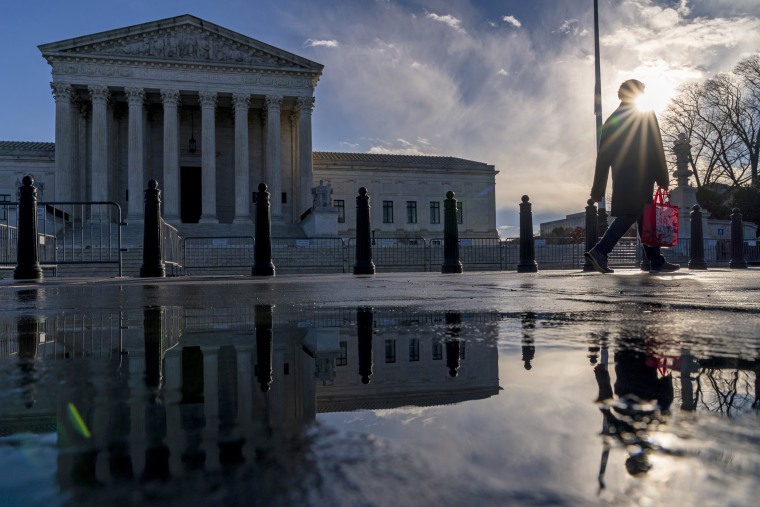WASHINGTON — The Supreme Court on Monday agreed to resolve a legal challenge brought by business groups that threatens the federal agency charged with protecting consumers from unlawful financial services practices.
The justices will hear a Biden administration appeal contesting a lower court ruling last year that said the mechanism allowing the Consumer Financial Protection Bureau to be funded directly by the Federal Reserve is unconstitutional.
The challengers, two trade groups representing lenders, argue that the agency must be funded with appropriations approved by Congress.
Although the Biden administration had asked the court to fast-track the case, it will be decided in the court's next term, which starts in October and ends in June 2024.
The bureau, which enforces consumer protection laws on issues like mortgages, credit cards and students loans, was set up as part of the 2010 Dodd-Frank Wall Street Reform and Consumer Protection Act. The funding structure was designed to protect it from political influence, with Republicans adamantly opposed to its creation.
Republicans and business interests have sought to undermine the bureau ever since it was created. It has faced various legal challenges, with the Supreme Court ruling in 2020 that a separate provision that protected the agency's single director from removal by the president at any time during the five-year term of office was unconstitutional.
That ruling ironically meant that President Joe Biden had free rein to appoint his own director, Rohit Chopra, when he took office in 2021.
In the latest case, Community Financial Services Association of America and the Consumer Service Alliance of Texas sued in 2018 seeking to throw out a regulation cracking down on payday loans.
A federal judge ruled in favor of the bureau after it had watered down the original regulation. As it currently stands, the rule — which is not in effect — bars lenders from repeatedly seeking to withdraw loan repayments from a consumer's bank account if there are insufficient funds.
But the New Orleans-based 5th U.S. Circuit Court of Appeals ruled for the challengers in October 2022. In throwing out the regulation, it concluded that the funding mechanism was an unlawful abdication of Congress' responsibility to appropriate funds based on the Constitution's divvying up of governmental powers.
Solicitor General Elizabeth Prelogar, representing the bureau, said in court papers that the appeals court decision "threatens to inflict immense legal and practical harms" on the agency, consumers and the financial sector as a whole. That is in part because it "calls into question virtually every action the CFPB has taken," she said.
The lenders urged the court not to take the case, saying there were "multiple legal defects" with the payday rule and that, because the regulation is not in effect, the impact of the appeals court ruling is limited.
New York and 20 other Democratic-leaning states filed a brief backing the bureau while Republican-led West Virginia filed a brief, joined by another 15 states, supporting the challenge.

